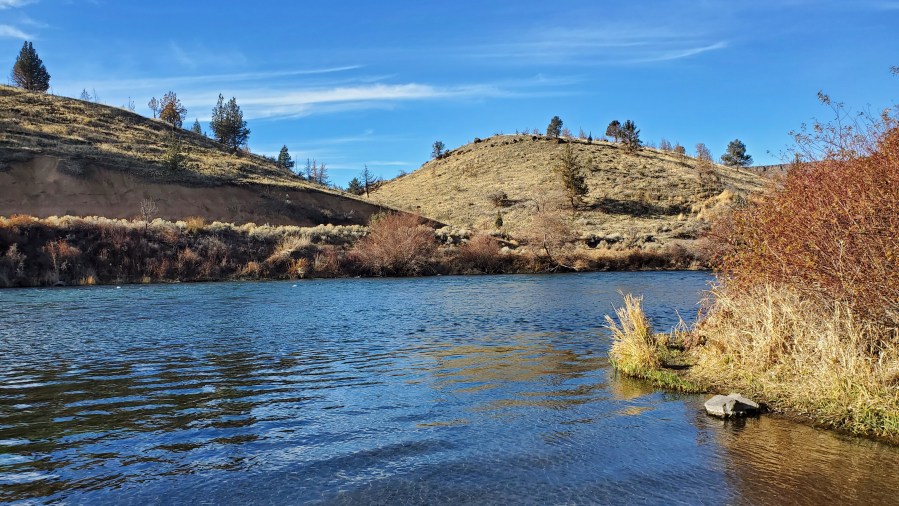CLACKAMAS COUNTY, Ore. (KOIN) — Violence against Native American women is “an epidemic,” said Deborah Maytubee Shipman, executive director of Missing and Murdered Indigenous Women (MMIW) USA. However, the coronavirus pandemic is complicating efforts to combat the problem.
Shipman founded MMIW USA about five years ago after two of her friends were murdered in a town bordering Navajo Nation, she said. The Portland-based organization has volunteers across the country helping bring missing women home, supporting families whose loved ones have been killed, and raising awareness of the problem.
When KOIN 6 News first spoke with Shipman in late January, her organization was searching for two Oregon women. Since then, one has been reunited with her family after attempting to hitchhike across the country. The other, 58-year-old Tina Spino, was found dead on the Warm Springs reservation.
Historically, addressing and documenting such cases has been fraught with challenges. Until recently, tribes couldn’t even access federal databases to enter missing persons information.
“Our deaths, our missing are all numbers that we had to count,” Shipman said. “None of them. No record. We are literally counting our own dead, and you tell me one faction of society that has to do that.”
The grassroots effort has largely been responsible for a new surge in federal interest, said David Rogers, the Missing and Murdered Indigenous Persons (MMIP) program coordinator for the state of Washington. Rogers, an enrolled member of the Nez Perce Tribe, is one of 11 program coordinators. Oregon, Alaska, Arizona, Montana, Utah, Nevada, New Mexico, Minnesota, Michigan and Oklahoma are the other states with MMIP coordinators, all hired after the Justice Department launched a new national strategy to address the problem in 2019.
Granting tribes access to the National Crime Information Center has been one big accomplishment so far in closing the data gap, Rogers said.
Now, the U.S. Attorney’s Office for the District of Oregon (USAO) just released its first annual MMIP program report. An initial analysis of available MMIP data indicated there are eight murdered and 11 missing Indigenous persons connected to Oregon, though the latter group included Spino, whose remains were formally identified earlier this month.

Two of the most recent murder cases come from the Warm Springs reservation. Gunner Bailey was shot to death on March 17, 2019. The FBI has offered a $10,000 reward for information. Jonathan Gilbert was murdered on Sept. 5, 2020. Shortly after that, Warm Springs Tribal Police said they had a person of interest in the case. The FBI said Sunday that both cases were still active, but did not provide further details.
Native Americans have suffered from disproportionate levels of violence for generations.
In some tribal communities, women face murder rates more than 10 times the national average, according to the Department of Justice. A 2016 study funded by the National Institute of Justice (NIJ) showed 84.3% of Native American women and 81.6% of Native men experienced any violence in their lifetime, compared to 71% of non-Hispanic white women and 64% of men.
Possible reasons for the discrepancies are endless, Rogers said, from social ills like drugs, alcohol and unemployment, to education, health and mental wellness.
“Why is it so disproportionate?” he asked. “You could probably study that question for many decades … and still not come up with an answer.”
When people go missing or crimes occur, particularly on reservations, investigations face complications unparalleled in the rest of the United States. Since reservations are sovereign territory, jurisdictional issues run rampant. Rogers and Shipman both say cooperation between agencies — whether tribal, county, state or federal — is key.
Lack of trust is another barrier to overcome. When it comes to missing persons cases, many people aren’t willing to share information about the case, either because they’re worried police might arrest the victim for something, or because they’re afraid of retaliation.
“Our goal is not to arrest anybody unless it’s somebody who’s murdered somebody or kidnapped somebody,” Rogers said. “Our goal is to find that missing person. Period.”

Communication is key to solving the problem, and a major part of the federal MMIP initiative, but the past year has not been conducive to in-person, on-the-ground work.
“COVID, unfortunately, really delayed a lot of our efforts,” Rogers said. Originally, the program had timelines in place for meeting its goals, but with COVID, “it’s fluid right now.”
Trainings planned for February were pushed further down the road. Rogers said they need to get into the field to collect relevant information and conduct trainings, and the pandemic has made that impossible.
Oregon’s House Bill 2625 directing Oregon State Police (OSP) to study the issue of missing and murdered Indigenous women also faced hurdles. The work group planned to have 11 listening events with tribal governments and urban Indian communities, but had to stop after only five due to the onset of the pandemic.
The group was still able to make several recommendations: establishing a partnership between law enforcement and the new federal task force, Operation Lady Justice, to solve open and cold case missing persons investigations; working across local, tribal and state borders to investigate cases; strengthening partnerships between police and Native American communities; and providing education for Oregon police on cultural awareness and the complexities between tribal and state law.
OSP presented the results of the study and recommendations to the Legislature in September. It’s up to lawmakers to implement changes and so far that hasn’t happened.
A spokesperson for Rep. Tawna Sanchez, the bill’s chief sponsor, said they aren’t aware of any follow-up action yet, and that the Legislature is likely focused on responding to Oregon’s catastrophic wildfires, the coronavirus pandemic, and tough economic times.

Despite what can feel like endless setbacks, Shipman and her colleagues at MMIW USA aren’t backing down. They’re relaunching Staying Sacred — a self-defense program geared toward young women — the first weekend of March, albeit virtually. They also have plans to start a similar program for men and boys in the coming months.
“We’re not waiting until COVID’s over,” she said.
The female-led group won’t stop searching for missing women either. It’s exhausting and often heart breaking work, but every time they reunite a missing person with their family, it gives them a glimmer of hope.
“We don’t often see that, so boy when we find somebody, it’s just the best feeling in the world,” Shipman said. “Being able to tell the family that, ‘Hey, we got her’ … nothing beats it.”